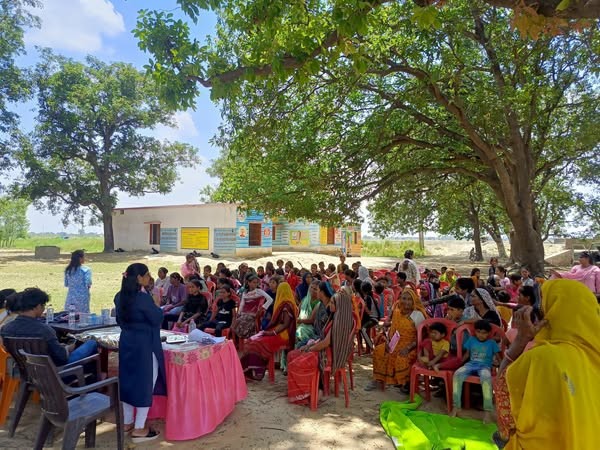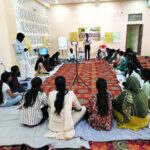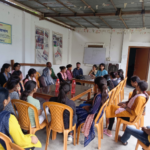International Menstrual Hygiene Day Celebrated in Gopiyapur
Introduction:
On May 28, 2025, Swabhiman Samiti, in collaboration with the Community Health Center (CHC) Uska Bazar, organized a comprehensive awareness program to mark International Menstrual Hygiene Day in Kattha Tola Gopiyapur, Gram Panchayat. This global observance day provided a vital platform for initiating conversations on menstrual health—a subject often surrounded by silence and stigma in rural communities. The program aimed to break taboos, normalize discussion around menstruation, and educate adolescent girls and women about safe and hygienic practices.
Menstruation remains one of the least discussed health topics, especially in rural India, where lack of awareness, misinformation, and traditional beliefs often prevent women and girls from seeking proper care. Poor menstrual hygiene can lead to serious infections, reproductive health issues, and school dropouts among adolescent girls. Recognizing the urgency to address these challenges, the event brought together health professionals, local leaders, community-based organizations, and adolescent participants to create a space for learning, dialogue, and action.
By focusing on menstrual hygiene management (MHM), the program aimed to empower girls to take control of their health and dignity. Through expert talks, live demonstrations, street plays, and the distribution of sanitary products and supplements, the event took a multi-pronged approach to ensure lasting awareness and behavior change. The active participation of hundreds of women and girls underscored the strong community interest and need for such engagements.
Objectives:
- To raise awareness about menstrual hygiene, its importance, and best practices for managing menstruation safely.
- To educate women and adolescent girls about the health risks of unhygienic menstrual practices and the importance of medical consultation.
- To normalize discussions on menstruation and reduce social stigma.
- To distribute sanitary pads and essential supplements such as iron and calcium to support adolescent health.
- To use creative approaches like street theatre to spread awareness in an engaging and relatable way.
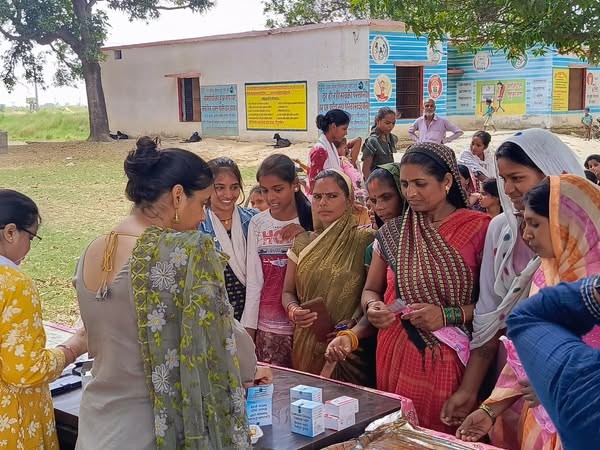
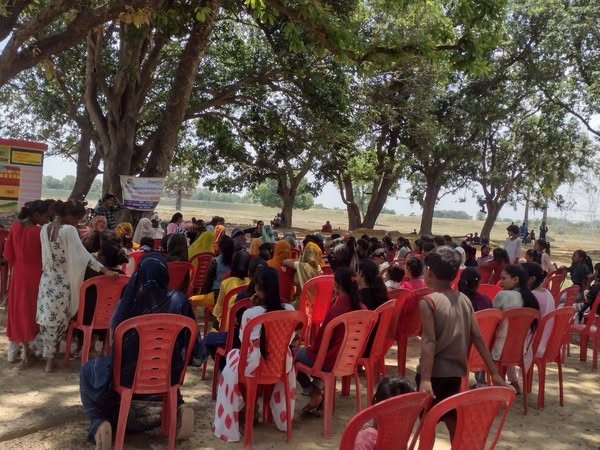
Participation and Activities:
- Expert Health Talk by Dr. S.K. Patel:
- S.K. Patel, Superintendent of CHC Uska Bazar, was the chief guest and addressed the audience with valuable insights.
- He explained three critical menstrual health conditions:
- If a married woman misses her period for over three months and does not conceive, it may be a sign of a health issue such as cyst formation in the ovaries, which could potentially lead to cancer if untreated.
- Experiencing frequent or irregular periods multiple times a month also requires immediate medical attention.
- The use of ash or unclean cloth during menstruation can result in infections. If using cloth, it should be clean cotton, washed thoroughly, dried in sunlight, and ironed before reuse. Reuse of unclean cloth is highly discouraged.
- Menstrual Hygiene Guidance by Dr. Preeti Shukla:
- Shukla emphasized safe menstrual hygiene practices:
- Sanitary pads should be changed every 4–6 hours.
- Hands must be washed thoroughly with soap before and after handling pads or cloth.
- Proper disposal methods for used pads were explained in detail to avoid health hazards and environmental issues.
- Shukla emphasized safe menstrual hygiene practices:
- Supplement Distribution and Support:
- Shashikala Madam and Marukh Ji from the RBSK team distributed iron and calcium tablets to adolescent girls to support their nutritional needs during menstruation.
- CHC Uska Bazar distributed sanitary pads to hundreds of adolescent girls and women in attendance.
- Cultural Performance for Awareness:
- A street play (nukkad natak) was performed by community youth—Maina, Sundari Neha, Ankit, Sanju, and Asmi—to depict common myths and unsafe practices around menstruation and encourage hygienic behavior.
- Anchoring and Organizational Support:
- The event was skillfully anchored by Mamta Verma, who also ensured smooth coordination.
- Team members from Swabhiman Samiti including Sambhavati, Priyanka, Suman, Zarina, and Neha actively participated and assisted in organizing the event.
- The program drew the attendance of hundreds of women and adolescent girls, reflecting strong community engagement and interest.
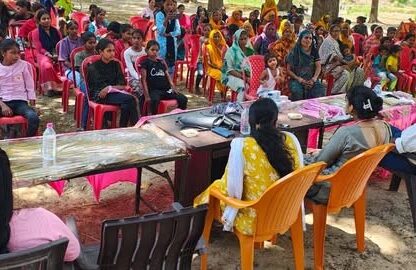
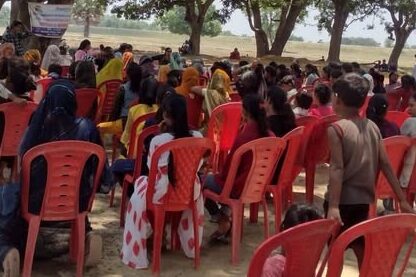
Impact and Outcomes:
- The event helped dispel myths and taboos around menstruation and replaced them with science-based knowledge and practical hygiene tips.
- Women and adolescent girls became more informed about when to seek medical help and how to safely manage their periods.
- Access to sanitary pads and supplements helped support better menstrual hygiene and nutrition for adolescent girls.
- The street play and interactive discussions helped break the silence on menstruation and empowered participants to spread awareness in their own communities.
- The program strengthened Swabhiman Samiti’s ongoing efforts under the Adolescent Empowerment Project to improve reproductive health outcomes in rural Siddharthnagar.

